Introduction
Your daily activity levels depend on having strong, healthy bones and a great mind. Calcium, the most abundant metallic element in the human body is essential for maintaining bone and teeth health. Calcium maintains bone strength and density against fractures and osteoporosis. Calcium occurs naturally in certain foods and can be supplemented in certain foods. Nigeria has a wide variety of foods high in calcium that you can add to your diet to improve your bone and teeth health.
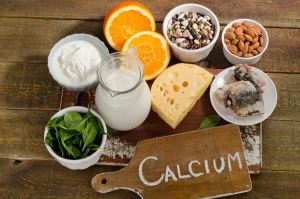
Source: Deposit Photos
WellaHealth Technologies remains your number one health insurance partner that is concerned about the health of your bones and teeth, in this article, Wellahealth will discuss why the body needs calcium, which Nigerian foods contain calcium, and what happens if the body does not have enough.
Why is Calcium Important?
Calcium is a key mineral that serves various important functions in the body. It is necessary for muscle function, nerve transmission, blood clotting, and developing and maintaining strong bones and teeth.
Bone health
Calcium is needed for bone formation, growth, and preservation. The bones and teeth account for approximately 99% of the calcium in the human body. During the growth phase in children, calcium helps bones grow. In adulthood, when growth has stopped, calcium continues to help maintain bones and prevent bone density loss, a normal component of the ageing process.
Post-menopausal women lose bone density faster than males or young persons and reduction in bone density puts them at higher risk of developing osteoporosis.
Muscle Health
In function, skeletal muscles contract to bring about movement. When a neuron activates a muscle, the body excretes calcium and, contraction occurs. When the body pushes calcium out of a muscle, it relaxes. Therefore, in the absence of calcium muscle function is impaired.
Heart Health
The cardiovascular (heart and vessels) system needs calcium to function. Calcium is essential for cardiac muscle (heart muscle) function ensuring the heart pumps well. Additionally, calcium relaxes the smooth muscles of the blood vessels allowing adequate blood flow to tissues and organs.
Bleeding and Healing
Calcium plays an important part in blood coagulation. Clotting and healing from bleeds is a complex process that involves several steps. Various clotting factors including calcium are involved in the coagulation cascade.
A doctor may recommend more calcium for persons who have started menopause, stopped menstruation because of anorexia nervosa or too much physical activity, are lactose intolerant or allergic to cow’s milk, and follow a vegan diet.
How much calcium do you need?
According to experts, people require different calcium amounts per day:
- 0 to 6 months: 200 milligrams (mg)
- 7–12 months: 260 mg
- 1-3 years: 700 mg
- 4 to 8 years: 1,000 mg
- 9 to 18 years: 1,300 mg
- 19-50 years: 1,000 mg
- 51-70 years: 1,000 mg for men and 1,200 mg for women.
- 71 years and older: 1,200 mg.
- Pregnant and breastfeeding women need 1,000-1,300 mg, depending on age.
Top Calcium-Rich Nigerian Foods
Good sources of calcium include yoghurt, milk, fish (sardines, salmon), green leafy vegetables, such as Ewedu &Oha, fortified breakfast cereals, fortified fruit juices, nuts (palm nuts), and seeds, especially almonds.
Ewedu (Jute Leaves)

Ewedu, or jute leaves, is a popular green vegetable in Nigerian cuisine, especially in the Yoruba diet. It is rich in calcium, with about 200 mg of calcium per 100 grams of raw ewedu. Ewedu soup, often prepared with traditional ingredients like locust beans and served with pounded yam or amala, is a flavorful way to boost your calcium intake.
Oha Leaves

Oha leaves, also known as ora leaves, are another traditional Nigerian vegetable that is high in calcium. With approximately 100 mg of calcium per 100 grams, oha leaves are a great addition to meals. This leafy green is typically used in the rich and flavorful Ofe Oha.
Tigernuts (Aya)
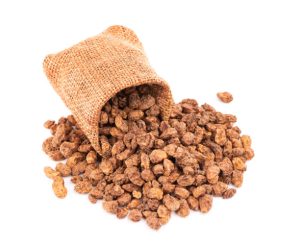
Tigernuts, known locally as aya, are not nuts but small tubers that are packed with nutrients. They contain about 50 mg of calcium per 100 grams. Tigernuts are a versatile ingredient that can be enjoyed as a snack or used in various recipes like tigernut drinks.
Egusi
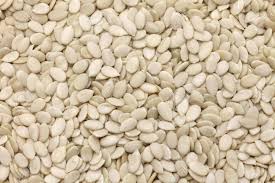
Egusi seeds are widely used in Nigerian cuisine such as egusi soup. These tiny seeds are nutrient-dense, especially calcium, with around 175 mg per 100 grams. Egusi seeds also include healthful lipids, protein, and important minerals.
Palm Nut (Ofe Akwu)
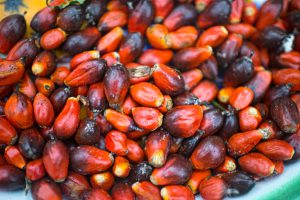
Palm nuts, used in dishes such as Ofe Akwu (palm nut soup), are not only flavourful but also high in calcium, with approximately 80 mg per 100 grams. Palm oil, obtained from these nuts, is also utilized in many Nigerian cuisines and has some calcium advantages.
Millet (Bamgbose)
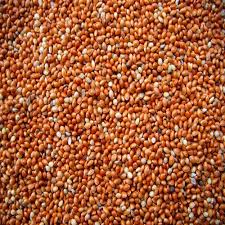
Millet, sometimes known as bamgbose, is a multipurpose cereal grain high in calcium, with about 8 mg per 100 grams. It is mainly used in Kunu and Nunu, additionally, it can be cooked and used as a morning cereal. It’s also high in fibre and other important nutrients.
Fish (mackerel, sardines)
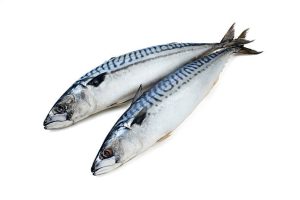
Certain varieties of fish, such as mackerel and sardines, are high in calcium, especially when eaten with the bones. Sardines give approximately 382 mg of calcium per 100 grams, whereas mackerel provides approximately 25 mg per 100 grams. Canned sardines and mackerel can be grilled, or added to stews and sauces.
Tips to Maximise Calcium Intake
To make the most of your calcium-rich foods, consider these:
- Combine calcium and vitamin D: Vitamin D improves calcium absorption. While the Nigerian sun offers vitamin D, try eating fish or fortified foods to supplement your intake.
- Eat a balanced diet: Eat a well-balanced diet that contains other vitamins and minerals necessary for bone health, such as magnesium and phosphorus.
- Avoid excess salt and caffeine: A high salt and caffeine intake might cause calcium loss. Moderation is crucial.
- Consult the physician: Always consult a physician before consuming any drugs or treatment due to bone pain or toothache. Diagnosis is always better than self-medication.
Calcium Deficiency
A low calcium level is known as hypocalcemia, some certain conditions or habits can cause low calcium levels, including:
- Bulimia, anorexia, and a few other eating disorders,
- Lack of parathyroid hormone,
- Kidney failure,
- High intake of coffee, soda, or alcohol
- Mercury exposure,
- Long-term use of laxatives,
- Long-term usage of some medications, such as chemotherapeutic agents or corticosteroids,
- Chelation therapy (used to treat heavy metal exposure),
- Consuming a large amount of protein or salt may excrete calcium.
- Some digestive system disorders, such as coeliac disease, inflammatory bowel disease, Crohn’s disease,
- Some surgical treatments for weight, include stomach removal,
- Pancreatitis,
- Vitamin D insufficiency,
- Phosphorus deficiency,
- Excessive magnesium consumption,
Symptoms of calcium deficiency include:
- Confusion or memory loss,
- Muscle spasms and muscle cramping,
- Numbness and tingling on the hands, feet, and face,
- Depression and hallucinations,
- Weak and brittle nails, and
- Pathologic fractures- bones are easily fractured.
Conclusion
Building and maintaining strong bones is essential for a healthy life, and fortunately, there are numerous calcium-rich foods available in Nigeria to assist you in this endeavour. As you age, your bones gradually lose density, leaving you more prone to fracture. However, integrating calcium-rich foods into your diet can improve bone health over time, Ewedu, Oha, Tiger nuts, Egusi, Ofe-akwu, Millet, and Fish can help you get enough calcium for good bone health.
We provide affordable healthcare coverage for you and your family at #800/month, to ensure you and your family stay healthy and strong. Contact WellaHealth today, to learn more about our health plans and subscribe to the one that best suits you.
Dr. Ifeoma M. Uduh, Dr. John Afam-Osemene
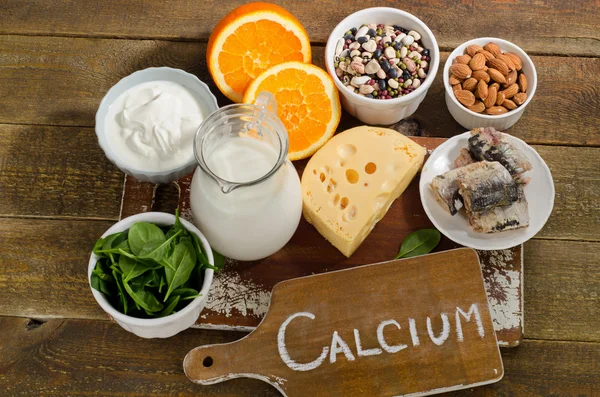






2 comments
What to use for boosting of 1.81 calcium level
Please see your doctor or physician for proper recommendation and prescriptions.